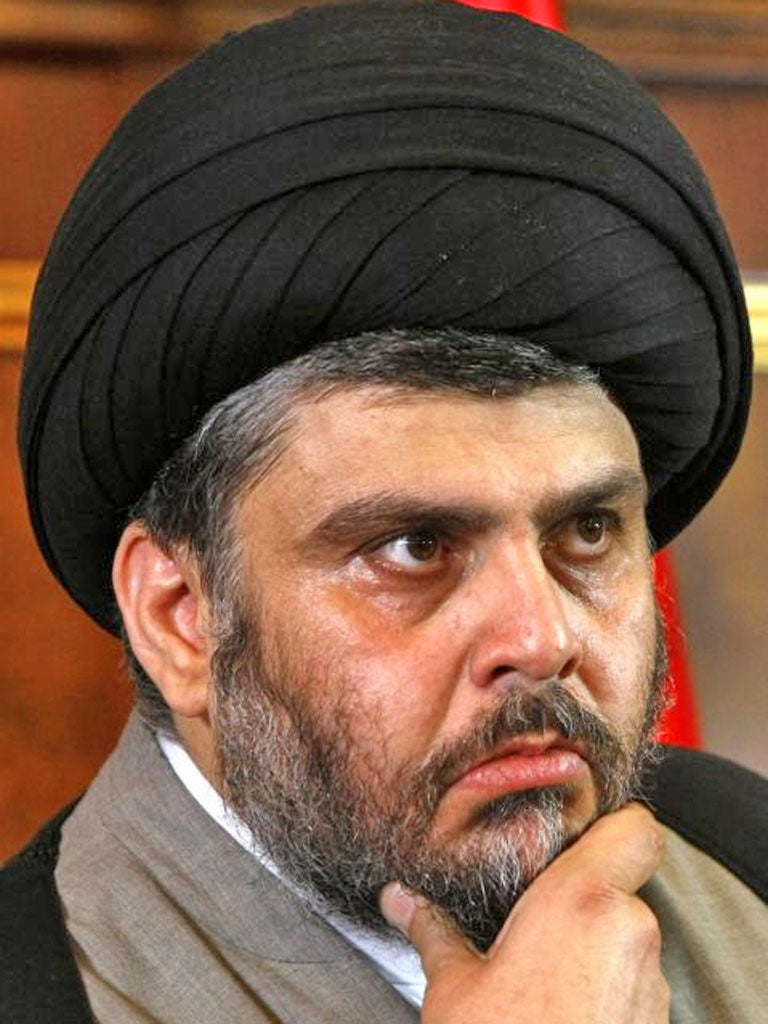
Iraqi cleric Muqtada al-Sadr visited the president of the autonomous northern Kurdistan region yesterday seeking to ease tensions between Baghdad and the Kurds that have threatened the coalition government.
The central government and the Kurdish region have long-running disputes over political autonomy, oil rights and contested territories, and ties have been further strained by a recent clash over oil exports.
Sadr, a Shia cleric who led uprisings against the US before American forces withdrew last December, is an influential player in government after his bloc's support of Iraqi Prime Minister Nouri al-Maliki helped secure al-Maliki's position.
On his first visit to the Kurdish region, Sadr called for dialogue between all government factions and presented 18 points, including one on oil, on which he said all parties needed to agree. "The oil of Iraq is for the people and no one has a right to claim it for himself," he said.
Ties between the Kurdistan Regional Government (KRG) and Baghdad were strained last October when US oil giant Exxon Mobil signed a deal to develop oilfields in the north, an agreement the central government deemed illegal because it says it has control over Iraq's oil exports.
The rift between Erbil and Baghdad widened further this month when the KRG said it was halting oil exports from the region because companies operating there were not being paid by Baghdad.
Join our commenting forum
Join thought-provoking conversations, follow other Independent readers and see their replies
Comments